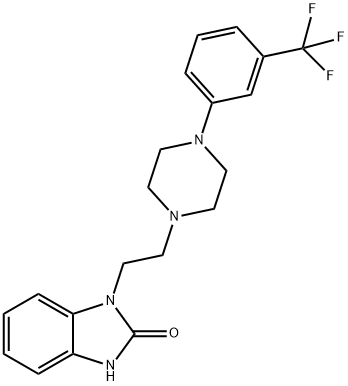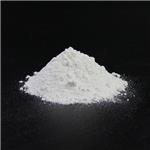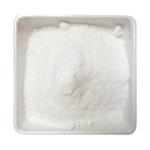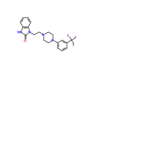description
Flibanserin (Addyi-Sprout Pharmaceuticals) is a first-in-class oral medication approved by FDA for the treatment of acquired, generalized hypoactive sexual desire disorder (HSDD) in premenopausal women. Although it meets the need for drugs that address women's sexual function, flibanserin is unlike agents that treat erectile dysfunction, as it is intended to increase sexual desire, not performance.
Flibanserin is the first prescription medicine for the treatment of this sexual dysfunction. The FDA approval is not without warnings; flibanserin is subject to the Risk Evaluation and Mitigation Strategy (REMS) to ensure safe use by patients, and has a boxed warning directed to prescribing providers. The goal is to inform patients and providers of the increased risk of hypotension and syncope (Vallejos 2017).
Uses
Filbanserin is an agonist of serotonin-5HT1A receptor and an antagonist of the 5-HT2A receptor. Binds dopamine receptors with Ki values ranging from 4-24 nM. Used to treat hypoactive sexual desire disorder in females.
Application
Flibanserin is an N-alkylpiperazine that is 1-[2-(1,3-dihydro-2-oxobenzimidazol-1-yl)ethyl]piperazine in which the remaining amino proton is replaced by a 3-(trifluoromethyl)phenyl group. A multifunctional serotonin agonist and antagonist which is used for the treatment of pre-menopausal women with hypoactive sexual desire disorder. Flibanserin has a role as a serotonergic agonist, a serotonergic antagonist and an antidepressant. Flibanserin is a member of benzimidazoles, a N-arylpiperazine, a N-alkylpiperazine and an organofluorine compound.
Mechanism of action
Flibanserin is a novel multifunctional serotonin agonist and antagonist (MSAA) that improves sexual functioning in premenopausal women who suffer from reduced sexual interest and desire.Flibanserin theoretically improves sexual functioning by enhancing downstream release of dopamine and norepinephrine while reducing serotonin release in the brain circuits that mediate symptoms of reduced sexual interest and desire.
Flibanserin has demonstrated clinical efficacy in premenopausal women who have reduced interest in and desire for sex and has 2 principal pharmacologic actions in microcircuits: it is a full agonist at postsynaptic serotonin 5HT1A receptors and an antagonist at postsynaptic 5HT2A receptors..Flibansetrin has high affinity for serotonin receptors in the brain: it acts as an agonist on 5-HT1A and an antagonist on 5-HT2A. In vivo, flibanserin binds equally to 5-HT1A and 5-HT2A receptors.
Drugs for enhancing female sexuality
Flibanserin is the world's first New drug for enhancing female sexuality. It can reduce the amount of 5-hydroxytryptamine which inhibits sexuality and improve sexual stimulant dopamine levels. It is already submitted to Food and Drug Administration of the United States for approval.
This drug can directly effect on the sexual pleasure control area of the female brain to restore female Flagging libido. By adjusting the aphrodisiac body system, Flibanserin Helps to restore the balance of sexual appetite suppression and exciting mechanism and lead to form a healthy sexual performance. The curative effect can be obtained a few weeks later. At the same time, the female viagra also has a certain side effects. One-eighth of tested women appeared dizziness, fatigue and sleepiness.
Similar to antidepressants, Flibanserin will affect the brain secretion chemicals associated with emotions and desires. In fact, it was used as a drug for the treatment of depression before before it becomes a sex medicine.
Different from the working principle of "viagra", Flibanserin works by adjusting the chemicals in female brains.
In addition, "viagra" only works for most men, Flibanserin has effects on women with low libido. If the patient does not have a sexual interest to someone, Flibanserin will not affect her. Flibanserin will not cause hyperaphrodisia. Clayton. Anita, adviser of the drug companies says :“it is not an aphrodisiac and it only helps to balance the chemicals in the female brain to make a female restore sex desire, but not more than the normal level. However, it takes some time for this drug to work and women should take the drug every day.
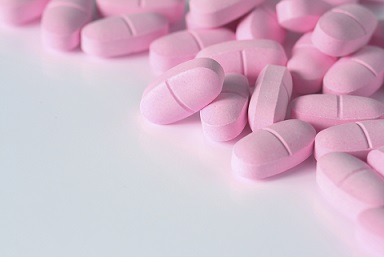
Figure 1 shows Flibanserin tablet.
Description
Flibanserin is a drug originally
developed by Boehringer-Ingelheim and later Sprout Pharmaceuticals, which was approved in 2015 by the FDA for the
treatment of premenopausal women with hypoactive sexual
desire disorder (HSDD). The drug, which was originally
developed for the treatment of depression by Boehringer-
Ingelheim, is a full agonist of the 5-HT1A receptor, an
antagonist of the 5-HT2A receptor, and a partial agonist of
the dopamine-4 (D4) receptor, which triggers increased
dopamine and norepinephrine levels along with decreased
serotonin levels. In three randomized trials
involving 2400 premenopausal women, the drug was found
to increase the number of satisfying sexual events by 0.5-1.0
events per month and increased sexual desire on average by
10-12% over placebo. Side effects include decreased blood
pressure and loss of consciousness, especially in subjects who
consumed alcohol.
Uses
Antidepressant (5-HT1a agonist and 5-HT2 antagonist).
Definition
ChEBI: Flibanserin is an N-alkylpiperazine that is 1-[2-(1,3-dihydro-2-oxobenzimidazol-1-yl)ethyl]piperazine in which the remaining amino proton is replaced by a 3-(trifluoromethyl)phenyl group. A multifunctional serotonin agonist and antagonist which is used for the treatment of pre-menopausal women with hypoactive sexual desire disorder. It has a role as a serotonergic agonist, a serotonergic antagonist and an antidepressant. It is a member of benzimidazoles, a N-arylpiperazine, a N-alkylpiperazine and an organofluorine compound.
Biochem/physiol Actions
Flibanserin is a 5-HT1A receptor agonist and 5-HT2A receptor antagonist. Flibanserin has high affinity for human 5-HT1A receptors (Ki = 1 nm) and lower affinity for 5-HT2A (Ki = 49 nm) and D4 (Ki = 4–24 nm) receptors, and negligible affinity for a variety of other neurotransmitter receptors and ion channels. Flibanserin was investigated as a novel, non-hormonal treatment for pre-menopausal women with Hypoactive Sexual Desire Disorder (HSDD). Flibanserin. Recently, Flibanserin was found to reduce L-DOPA-induced dyskinesia in a model of Parkinson′s Disease.
Synthesis
The large-scale synthesis of flibanserin (X) mostly follows a
patent from Symed Laboratories Limited which demonstrated
hundred-gram-scale preparation of the drug as described in
Scheme. Starting from commercially available 1-(prop-1-
en-2-yl)-1,3-dihydro-2H-benzo[d]imidazol-2-one (74), installation
of an ethylene side chain was accomplished under
conventional alkylation conditions with 1,2-dibromoethane
and base, and this event was immediately followed by a second
alkylation reaction involving piperazine to secure piperazinyl
benzimidazolone 75. Interestingly, the enamine double bond within 74 was apparently reduced to the corresponding
isopropyl group under these conditions. Although the authors
do not comment about this reduction directly, similar examples
of olefin reduction under non-hydrogenative alkylation
conditions have been reported in the literature separately by
both Pai and Ryu. Removal of the isopropyl group was
facilitated by means of aqueous sodium hydroxide to afford 76,
which underwent N-arylation under Buchwald conditions with
1-bromo-3-(trifluoromethyl)benzene 77 to furnish flibanserin
(X) in 63% yield.
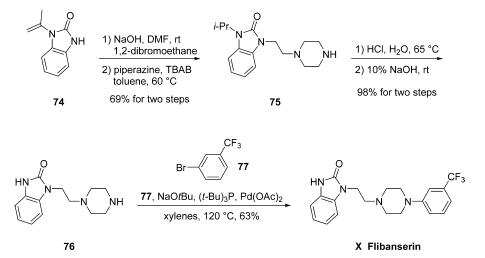
in vitro
previous study found that flibanserin was a 5-ht(1a) agonist, a very weak partial agonist on dopamine d(4) receptors, and a 5-ht(2a) antagonist. flibanserin could reduce neuronal firing rate and flibanserin-induced reduction in firing rate was likely mediated via stimulation of postsynaptic 5-ht(1a) receptors. moreover, flibanserin could quickly desensitize somatic 5-ht autoreceptors and enhance tonic activation of postsynaptic 5-ht(1a) receptors. in addition, flibanserin was able to reduce synthesis and extracellular levels of 5-ht in the cortex [1].
in vivo
previous animal study showd that flibanserin had antidepressant-like activity in most animal models sensitive to antidepressants, and such activity seemed different from that exerted by other antidepressants. in addition, flibanserin did not show consistent effects in animal models of anxiety and seemed to exert potential antipsychotic effects [1].
References
[1] borsini f, evans k, jason k, rohde f, alexander b, pollentier s. pharmacology of flibanserin. cns drug rev. 2002 summer;8(2):117-42.
[2] katz m et al. efficacy of flibanserin in women with hypoactive sexual desire disorder: results from the begonia trial. j sex med. 2013 jul;10(7):1807-15.
